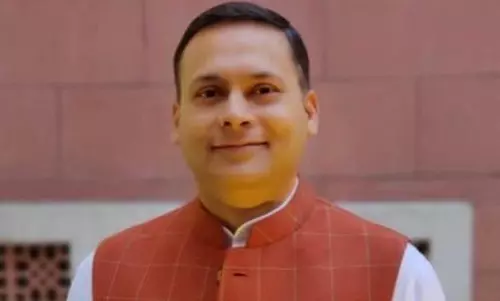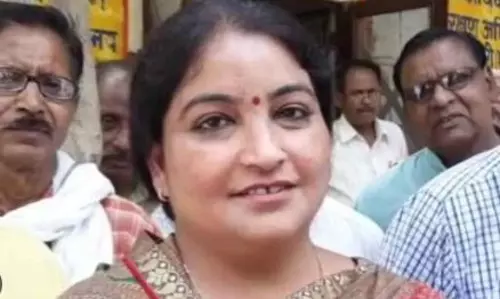
Repeat Announcements
text_fieldsThe last full budget of the Narendra Modi government was definitely anticipated to be a ‘populist’ budget in anticipation of the coming Lok Sabha election.
Finance Minister Arun Jaitley’s 1 hour 50 minutes speech in the Parliament on Thursday literally proves it right. The budget which gives emphasis to sectors such as agriculture, rural development and healthcare, includes several announcements that are capable of enriching rural India. Though the promises including providing tax concession to farmer-producer companies, allotting Rs 2, 000 crore for developing agricultural markets, the decision to provide free electricity connections to 4 crore rural households and announcing health insurance schemes in the health sector to cover 10 crore poor families should be welcomed, we cannot help but say that certain apprehensions still remain.
Former Prime Minister and economist Dr Manmohan Singh shared such an apprehension. Manmohan Singh reacted that though he did not blame the budget by calling it an ‘election budget’, the ‘fiscal arithmetic’ put forth by Jaitley was likely to be ‘at fault’. It is clear that he has questioned the Centre’s financial capacity to meet the budget promises. Where were the funds to implement the announcements - this was what even the Oppositions MPs and economists asked after the budget presentation. The answer to these questions from the ruling side was only empty rhetoric.
The economic survey report tabled in the Parliament by Jaitley last Monday shows how chaotic India’s economic scene is. One of the highlights of the report is that a growth rate of only 6.75 per cent can be achieved in the present situation. Keep in mind that in the next two years, we aim for 8 per cent, as stated by what the Minister said during the budget speech. In that case, the primary assessment should be that the union budget as well, has been prepared by ignoring the facts and warnings cited in the report.
Without comprehending the reality that the nation has still not recovered from the hardships created by demonetisation and GST, the Finance Minister has reiterated during the budget speech that all those economic ‘reforms’ were a huge success. He points out the increase in the number of tax payers as one of the success factors. Such an analysis is possible only by neglecting crores of citizens in rural India including the farmers who have been plunged into misery due to these ‘reforms’. This kind of announcements also reveals the approach of the present government towards rural India. Such a government making attempts for a ‘populist budget’ using words like rural development and agriculture, can only be seen as an election gimmick.
It is to be noted that many of these promises which the government claims to be popular, are a repetition of the previous budgets. National Health Protection Scheme, one of the main attractions of the budget itself, is an example. This scheme had been introduced in the union budget 2016 as well. The Prime Minister had mentioned about the scheme last year during his Independence Day speech. The announcement of setting up new medical colleges by upgrading the existing district hospitals has been borrowed from the National Health policy of the previous year.
And the fact that many schemes which were once announced but later sank into oblivion have found a place in this budget again, would justify the criticism that this is just a paper budget. No productive suggestions can be seen in the budget to overcome the crises created by the policies introduced by the present government in the name of economic reform. There were no solutions either to curb the oil prices that rose to an all-time high leading to a severe hike in the prices. Considering the price of crude oil in the global market, cutting the basic excise duty can be seen only as a shortcut to Modi’s ‘vote’ budget.
As usual, this budget has not failed to please the corporates either. In the background of an increase in the number of tax-payers, there were expectations that the income tax slabs would be changed which however has not happened. At the same time, the corporate tax on companies with a turnover of up to Rs 250 crores has been brought down from 30% to 25%. This cannot be construed as a concession only to small scale corporates. Through this measure, these firms have been included this time in the tax slab of small and medium scale enterprises. This has to be seen as the first step of the corporates getting on to this in future.
Further, not to be lost sight of is the fact the budget, declaring as it is over a dozen schemes for the farmers, does not have a single mention about agricultural loans. But who does not know the fact that if a moratorium is declared on agricultural loans or if they are written off, the one to be most affected is the country's corporates? Therefore, even at the expense of a silence on agricultural loans, the government chose to pander to the corporates. The announcements of selling the government shares of 24 public sector enterprises including Air India and of implementing 'Make in India' in the defence sector are also intended for the corporates at home and abroad. In short, this budget is one that does not recognize the realities of contemporary India and nothing more than a repetition of declarations heard over years.























